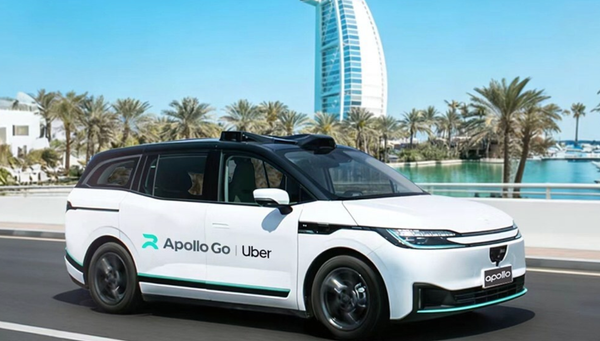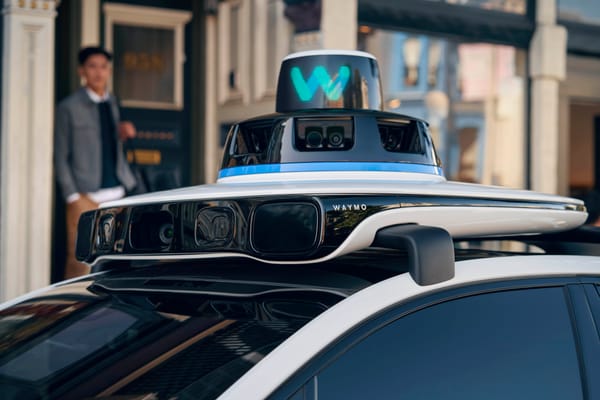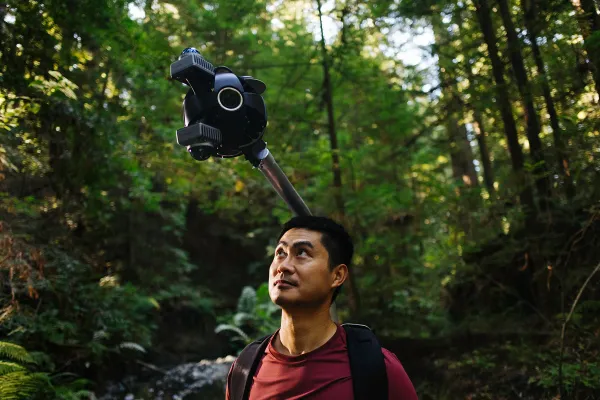Glasses, AI, and VR: Everything Announced at Meta Connect 2025
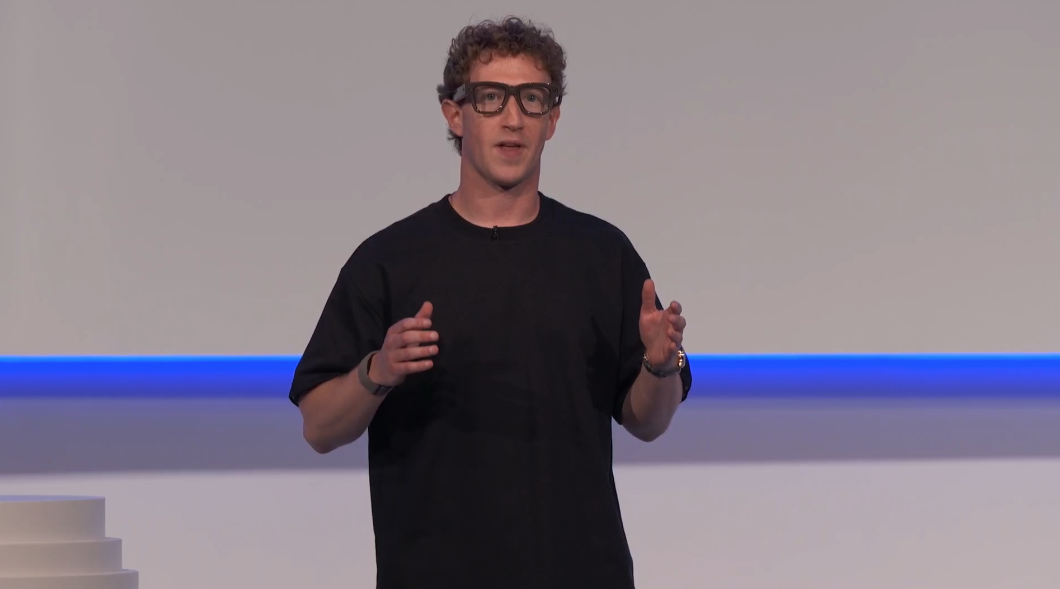
- Meta introduced upgraded Meta Ray-Bans, the Oakley Meta Vanguard, and its first Meta Ray-Ban Display glasses with Neural Band control.
- Meta expanded its AI and VR capabilities with Horizon Studio world-building, the Horizon Engine, and new Quest content, including Horizon TV.
Meta made some major announcements today as part of CEO Mark Zuckerberg's keynote at its largest annual event, Connect. Zuckerberg framed his keynote around the three technologies Meta is focusing on as it reinvents itself for the era of spatial computing, including glasses, AI, and virtual reality.
Glasses
The event kicked off with a live demo of Zuckerberg wearing a pair of the much-rumored and anticipated Meta Ray-Ban Display glasses. Zuckerberg's live feed from his glasses showed text messages from his team cheering him, overlayed against live video of him making his way from the green room to the stage.
Meta has been working on glasses for the past decade, and Zuckerberg indicated that its smartglasses sales mirror those of popular consumer devices that have debuted in the past. Zuckerberg outlined three key principles that guide Meta's glasses.
- They need to be great glasses first: This principle reflects Meta's focus on design and wearability, encompassing various styles through its partnership with EssilorLuxottica and its engineering efforts to make them as lightweight as possible.
- Technology needs to get out of the way: Zuckerberg emphasized that the key to glasses is for you to benefit from AI while keeping you present in the moment. He stressed that we have lost presence with the phone and that glasses have an opportunity to bring that back. Glasses achieves this by presenting users with access to the tools when they need them and then fading back into the background.
- Take superintelligence seriously: Meta has been focusing a lot on AI and believes that AI should be helpful and empower users through the glasses. For Meta, glasses are the only factor that allow AI to see what you see, hear what you hear, and talk to you and show you visuals throughout the day. As AI is moving fast, updates to AI should be made available to users as soon as they are ready. Zuckerberg indicated that they have thought ahead on the sensors needed for AI so that all that is needed are software updates to unlock new AI features.
Zuckerberg announced three new glasses as part of its Fall 2025 lineup.
Meta Ray-Ban is getting an upgrade with more colors, twice the battery, and 3K video resolution. They are available now for $379 USD. A limited edition transparent matte version was also made available in two colors.
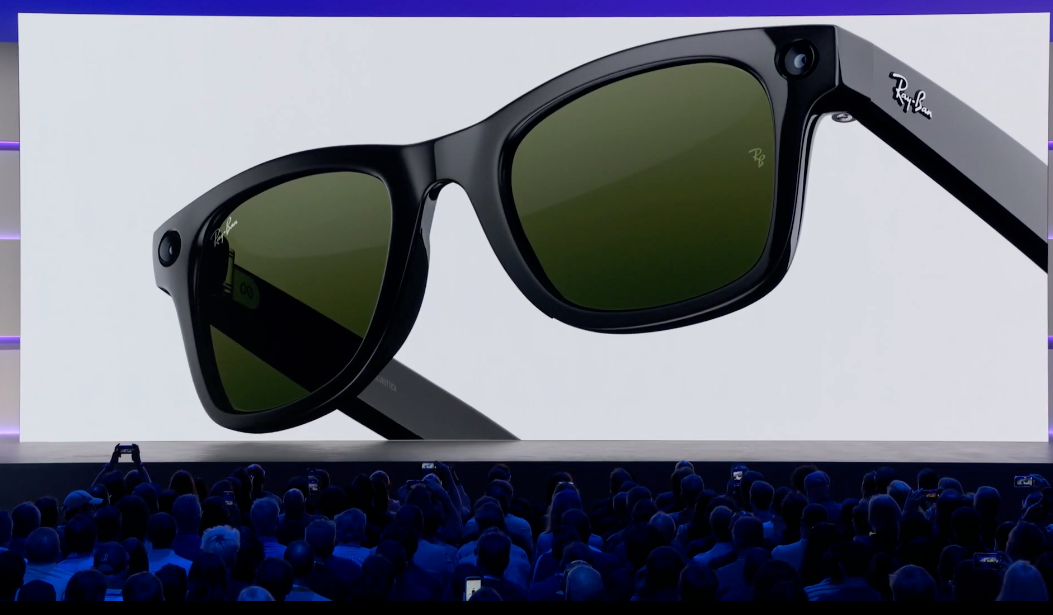
In addition, all Meta Ray-Ban users will be able to access two powerful new features, including Conversation Focus, which is a new directional audio feature that allows Meta Ray-Ban to narrow in on the voice of someone in front of you so that you can hear them better, and new slow-motion and hyperlapse video recording modes which are perfect to capture the action in front of you and share on social.
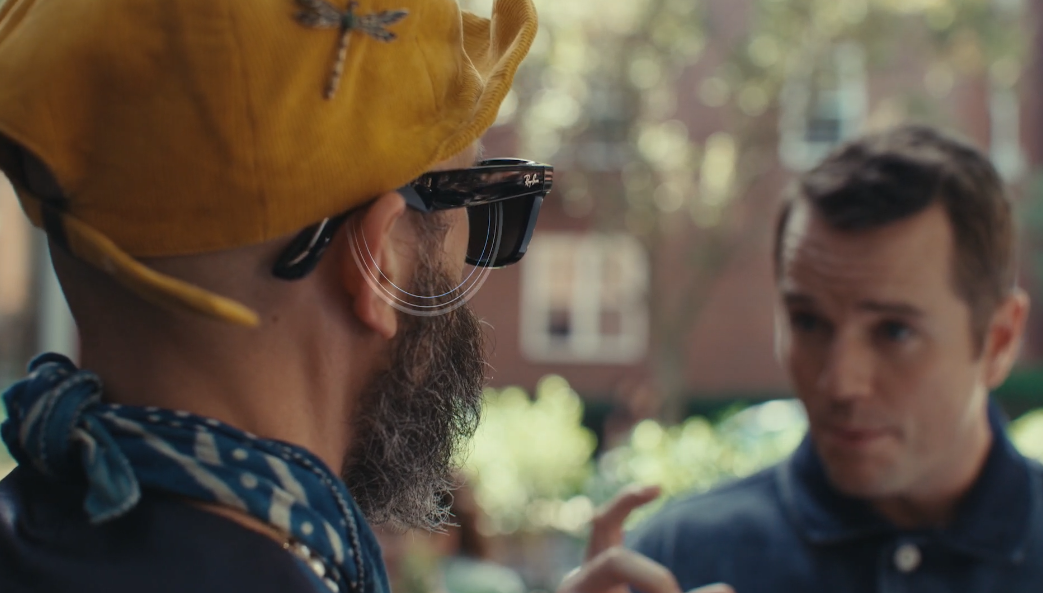
Earlier this year, Meta announced its latest glasses brand to join its family, Oakley. The Oakley Meta HSTN is designed for sports and fitness. Joining this category is the newly announced Oakley Meta Vanguard, featuring a longer battery life, a wider-angle camera, video stabilization, and integrations with Strava and Garmin to auto-record and overlay your performance metrics on captured video that is optimized for social media. The glasses also have an LED inside so that wearers can keep an eye on their heart rate when connected to the Garmin app. Meta says that this is the most water-resistant pair of smartglasses yet, with an IP67 rating. Its open-ear speakers are six decibels louder, and it features a five-microphone array that optimizes calls when you are most active. The glasses also come in different shields, which are iconic to the Oakley brand. The device is available for pre-order at $499 with shipping in October.
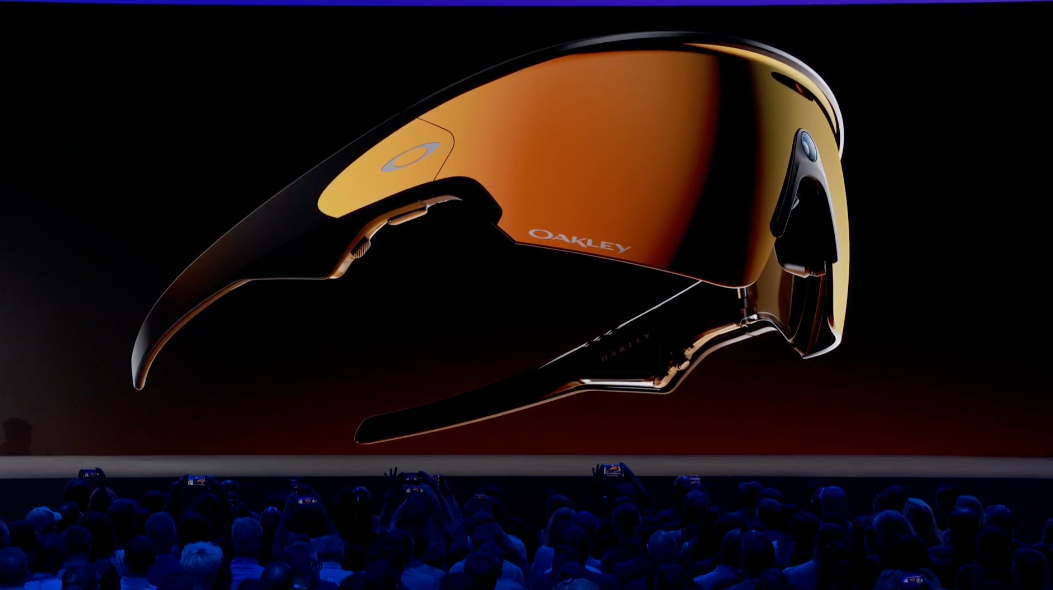
Finally, Zuckerberg ended the glasses segment of the keynote with the most anticipated device, Meta Ray-Ban Display. Meta's first smartglasses with a screen, the Meta Ray-Ban display, have a monocular display that boasts 600 x 600 resolution, providing 42 pixels per degree and 5000 nits of brightness. Meant for indoor and outdoor use, the glasses come in two styles, black and sand, and feature transition lenses.
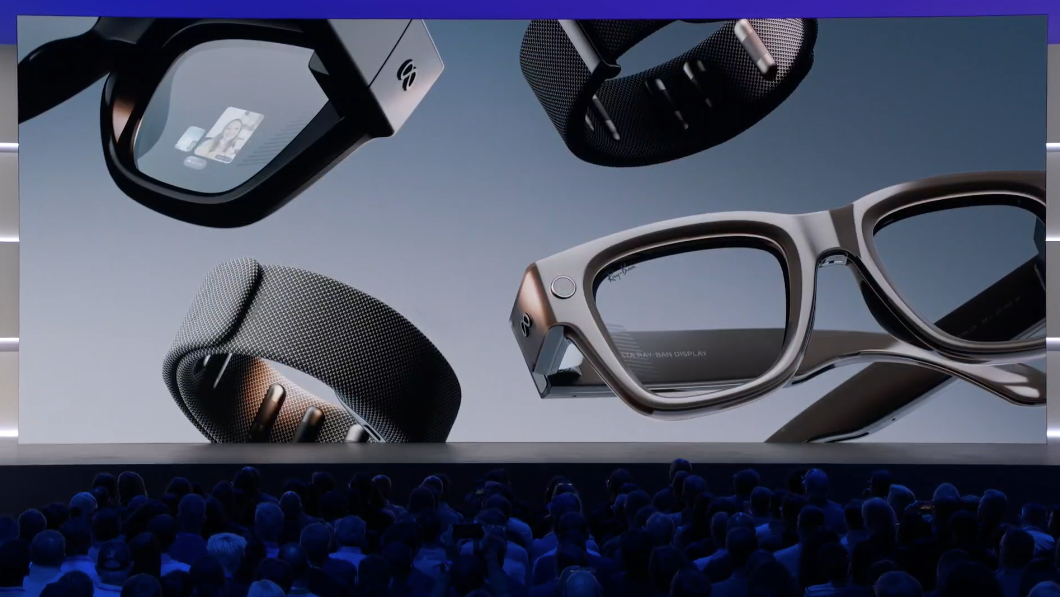
To control what is on the screen, users will use the Meta Neural Band, a water-resistant band that uses electromyography (EMG) sensors to detect subtle muscle signals in the wrist. This allows you to move through apps on the screen and even type, as demoed live on stage by Zuckerberg himself, which admittedly was pretty magical. The glasses are expected to have up to 6 hours of mixed-use battery life per charge, while the band provides all-day battery life with up to 18 hours of use in a single charge.
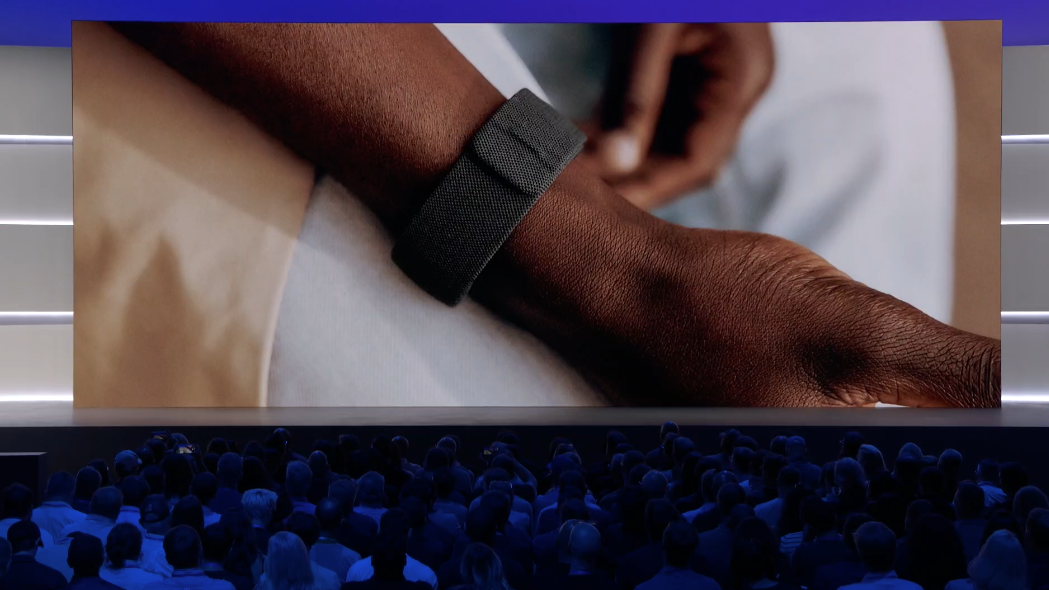
Meta highlighted a variety of use cases for its first smartglasses with a screen, including taking video calls, messaging, previewing photos and videos before they are shot, navigation, and music playback. The most compelling use case, however, was the live captions and translations that add subtitles to any conversation. Meta AI will also benefit from the display by showing you the answers, including step-by-step instructions.
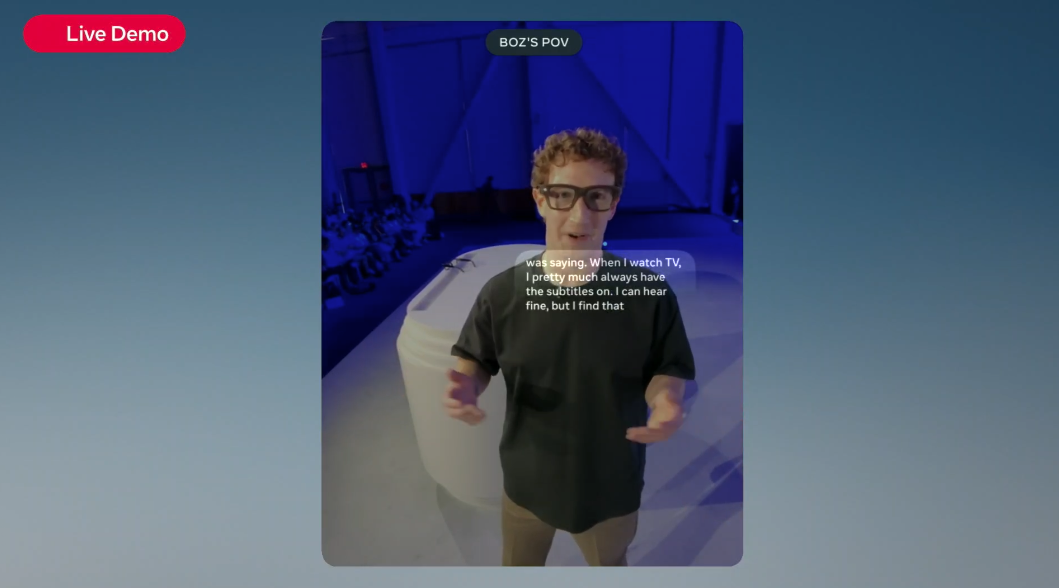
The duo starts at $799 and will be available in the US exclusively at physical retailers, including Best Buy, LensCrafters, Ray-Ban Stores, and Sunglass Hut. Consumers in the USA can already book an appointment to try these out starting September 30.
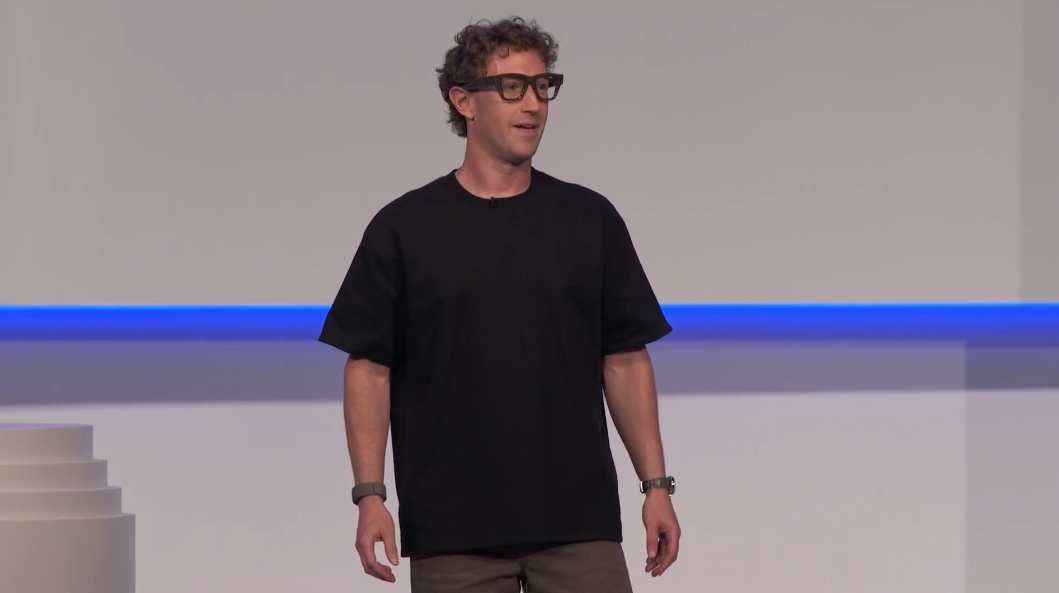
AI + VR
Zuckerberg took off the Meta Ray-Ban Display glasses and turned his attention to content creation for VR accelerated by AI. Meta has been investing heavily in Horizon World creation. Over the past year, they have debuted a number of AI-enabled innovations, all aimed at lowering the barrier for 3D content creation and making world creation easier and faster. Zuckerberg noted that 3D content creation today is a constraint that is holding the ecosystem back, not just for VR but also for glasses. Meta's vision is to make 3D content creation as easy as using Meta AI. Simply say something, and it gets created.
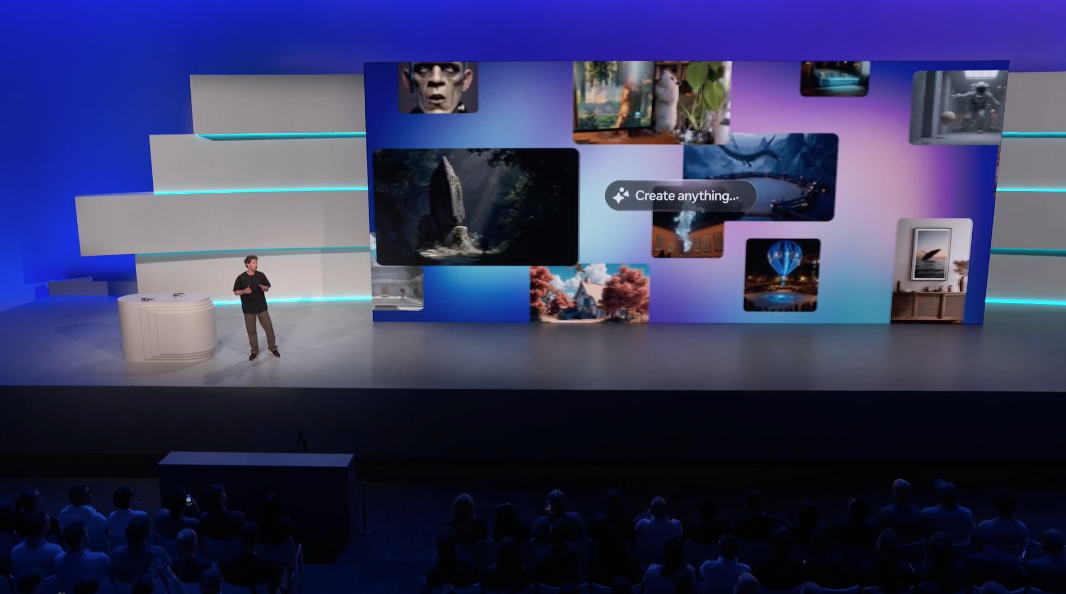
Today, Meta made two announcements that move them in that direction.
Meta Horizon Studio will soon be getting agentic AI capabilities that stitch together the mesh, skybox, and typescript generation functionality that is already available today to enable users to create worlds with a single prompt.
Powering this is the Horizon Engine, Meta's game engine, which replaces the Unity runtime. Zuckerberg said that this engine is optimized to bring the metaverse to life. In his presentation, he highlighted how this engine made jumping into worlds as quick as loading a website, with loading times that are 4 times faster than previous versions, and that the engine also enabled 5 times the number of concurrent users.
Virtual Reality
Finally, the final focus of the keynote was on the content available for Meta Quest, Meta's mixed reality headset (although surprisingly, they did not use the term MR or mixed reality once in the keynote, but rather referred to it as VR).
Zuckerberg highlighted a number of strong IPs in the gaming category for Quest, including those from Marvel, Star Wars, and Dungeons and Dragons. But while he started with content made specifically for VR, he spent most of his time on stage talking about the growing 2D video content catalog available on the device. Zuckerberg stressed that video content was an important content category for both VR and glasses.
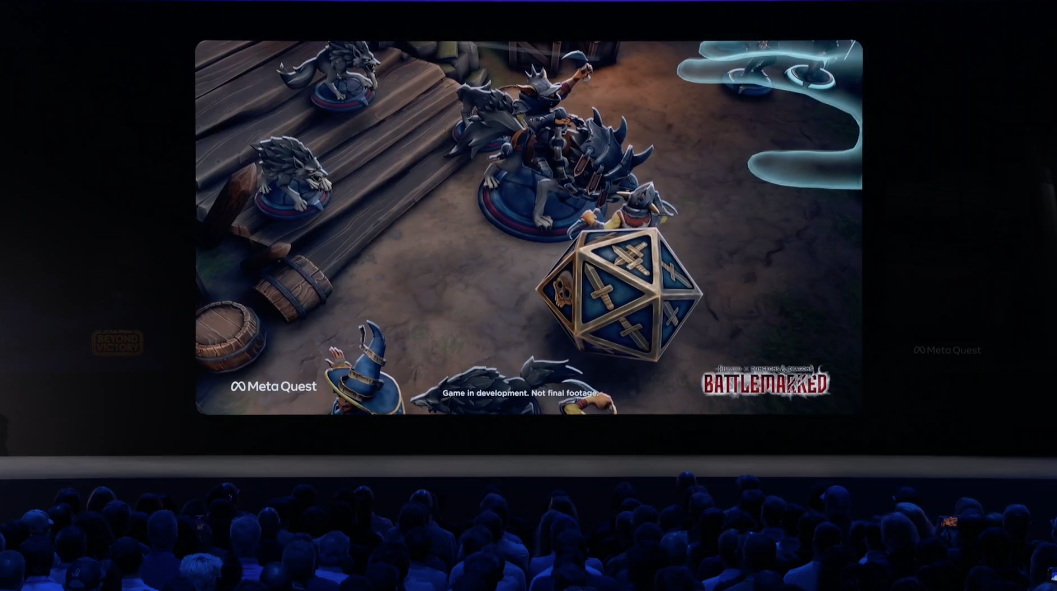
With numerous video streaming options available, including Prime Video, Peacock, Twitch, and now Disney, ESPN, and Hulu, which was announced at Connect, Meta announced that they are launching Horizon TV, a hub for video entertainment. Horizon TV supports Dolby Atmos with Dolby Vision on the roadmap.
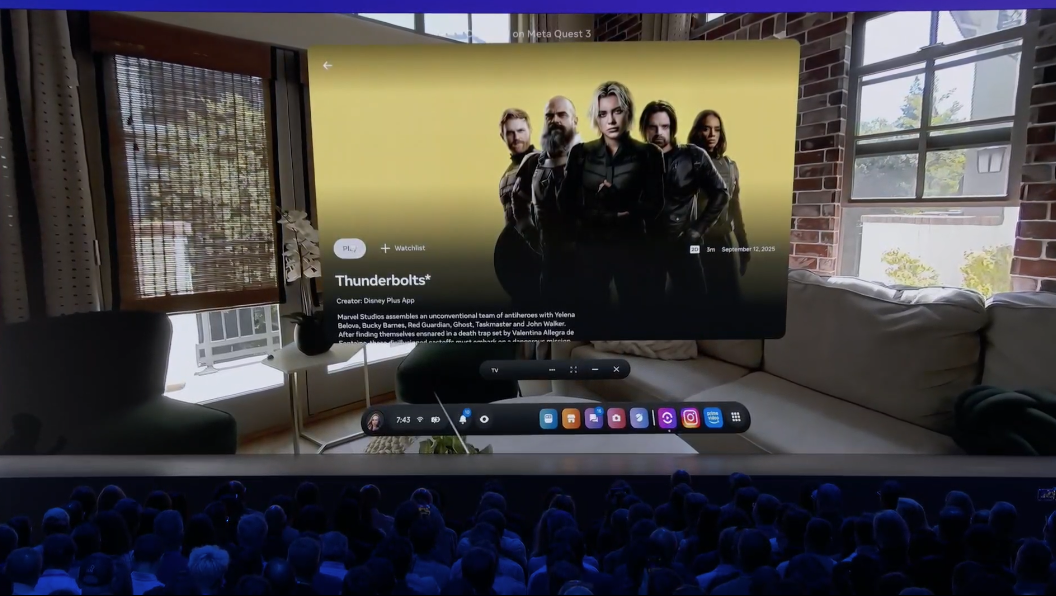
The keynote ended with director James Cameron taking the stage with Meta CTO Boz to talk about the massive opportunity of 3D storytelling. One of the key points they stressed is how ready Meta Quest is to enable this new generation of movies and TV because of how far the display has come. As part of their time on stage together, it was announced that Quest users will be getting an exclusive clip from Cameron's upcoming Avatar: Fire and Ash, which they can watch in 3D.
Disclosure: Tom Emrich has previously worked with or holds interests in companies mentioned. His commentary is based solely on public information and reflects his personal views.



